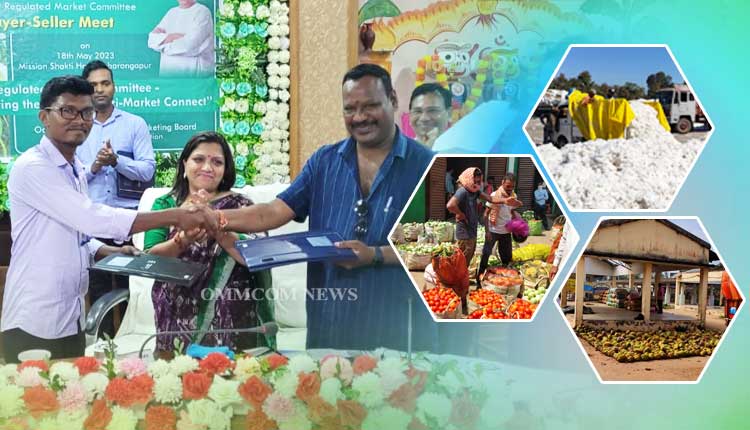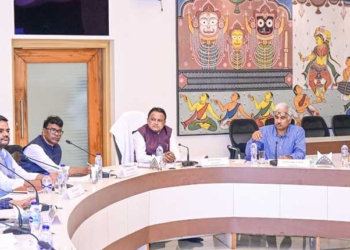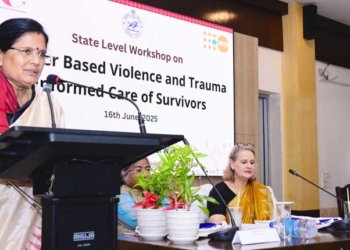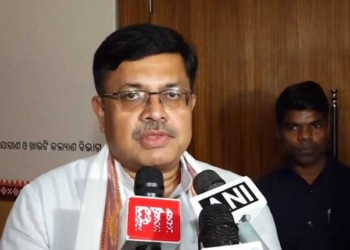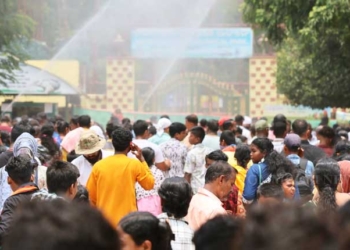Bhubaneswar: Continuous improvement in agricultural and horticultural productivity due to positive interventions by multiple agencies at multiple levels in the country has led to a considerable increase in both food and non-food agricultural and horticultural products. In the present scenario, the issues faced by farmers are mostly related to the successful marketing of their produce and fetching remunerative prices. So, the focus of policymakers has now shifted from increasing production to efficient marketing of these products alongside production.
As Odisha has been achieving new heights under the visionary leadership of Chief Minister Naveen Patnaik, the cooperative sector is also striving to improve Odisha’s cooperative architecture by syncing it with the needs of the people. Following the vision of the Chief Minister, Cooperative Minister Atanu Sabyasachi Nayak has led the successful onboarding of all 66 RMCS of the state to the e-NAM portal. Odisha has left many agriculturally advanced states in the country far behind and has achieved the unique feat of 100% on-boarding of its agricultural markets under all RMCs.
In this context, the Odisha State Agricultural Marketing Board (OSAM Board) under the administrative control of the Cooperation Department, Government of Odisha, has taken a leap forward. All the 66 Regulated Market Committees of the state have been successfully onboarded to the e-NAM platform. It is pertinent to mention here that, e-NAM is a pan-India online platform developed by the Ministry of Agriculture and Farmers’ Welfare, Government of India, with the aim to link all the buyers and sellers of agricultural produce, virtually, through the APMCs (Agricultural Produce Marketing Committees)/ Regulated Market Committees (RMCs).
Moving one step further, the department has onboarded 401 Farmer Producer Organisations (FPOs) to the agri-marketing platform. About 400 Women Self Help Groups (WSHGs) as members of these FPOs, can now reap the benefits of this online platform in marketing their produce. Facilities have now been developed enabling transactions through Android mobile phones. A farmer having an Android mobile phone can now access the agri-commodities market functioning across the country and sell his produce at the price of his choice from within the comforts of his home just using his fingertip. All steps are being taken to ensure that the RMCS is operating without hassles under the guidance of Minister Nayak, said Sanjeeb Kumar Chadha, Principal Secretary, Cooperation Department.
To further facilitate the efficient use of the online platform and by foreseeing the required policy-level interventions in the future, the Cooperative Department has undertaken some strategically important and futuristic agri-marketing reforms. These include a unified licensing system and a single-point levy of market fees. The Odisha State Agricultural Produce Marketing Act has been suitably amended to make way for these much-needed reforms. The e-NAM platform along with these reforms have brought in the benefits of transparency in trade, better pricing, access of farmers to all the mandis across the country, availability of up-to-date price information, and online receipt of payment. The bargaining power of farmers has increased to a considerable extent due to this futuristic intervention with multiple buyer options.
Further, to boost agricultural marketing, the Cooperation Department has initiated a project on the “Agri Marketing Network” linking all 66 RMCs, 43 Krushak Bazars, and 76 Municipal Markets, including 800 FPOs and WSHGs. To facilitate the implementation of the project, OSAM Board has entered into an agreement with the Agri-Business Incubator wing of the International Crop Research Institute for Semi-Arid Tropics (ICRISAT), an international organisation notified by the United Nations and the Government of India.
The major activities to be undertaken by the ICRISAT-ABI include a primary survey of fresh produce markets, retail outlets, and buyers in different cities, secondary research on demand assessment, study on the calendar of requirements, packaging needs, and pricing, identification of customer segments and purchase behaviour for segment prioritisation, customers’ need assessment and potential market opportunities, business process mapping, identification of need-gaps in the process, streamlining the digital and physical process for grading and pre-cooling, produce trading, the business process for linking farmers and buyers, identification of promotion and marketing strategies and customer acquisition plan. On successful completion of the project, the Board aims to bring in transformative changes in the sector of marketing of fruits and vegetables, ultimately empowering the primary producers especially, small and marginal farmers which in turn will serve the target of doubling farmers’ income.
To date, 3,31,490 farmers producing surplus marketable agricultural products have been registered by the RMCs of the state in the portal empowering them to sell their products in the pan-India market without physically moving out of their villages. In addition, 8,297 traders from the state have also been registered in the online portal to facilitate their access to the tradable agri-produces across the country. The commodities being transacted through the RMCs include fruits and vegetables, coconut, maize, cotton, chilly, turmeric, ginger, cashew nuts, betel leaves, ground nut, fish, prawns, crab, dry fish, etc.
Now, all these efforts of the state government have started yielding results. The farmers of the state have accepted this modern idea very enthusiastically and, till now, have traded agri-commodities to the tune of 90.44 lakh quintals and fetched a whopping amount of Rs 2,364.80 crore. The registered FPOs have traded 3.20 lakh quintals of agri-commodities worth Rs 62.95 crore by using this platform.
This platform has also helped in executing 20,373 inter-mandi trades of 10.06 lakh quintals of agri-commodities worth of Rs 183.29 crore. There is also a provision of trade via the farm gate module within this platform and 129 such trades have been executed involving the traded quantity of 654.2 quintals of agri-commodities. As envisaged, these figures are going to grow in the future benefiting the farmers, thanks to the foresightedness of the Department. To further increase the scope of agri-marketing the department is organising buyer-seller meets in all RMCs across the state. This techno-legal intervention will certainly fasten the achievement of the goal of doubling farmers’ income.
The Cooperation Department has set a target for itself to further extend this platform to the next level down the line. The rural haats/gramin haats at the Gram Panchayat level are the next target of the department. It has been envisioned to link all these small and medium markets functioning in the state to this electronic platform and extend the benefits of online agri-commodities marketing to the small/marginal farmers residing in the remotest locality. The Team Cooperation is on the job under the personal supervision of Principal Secretary Chadha.



